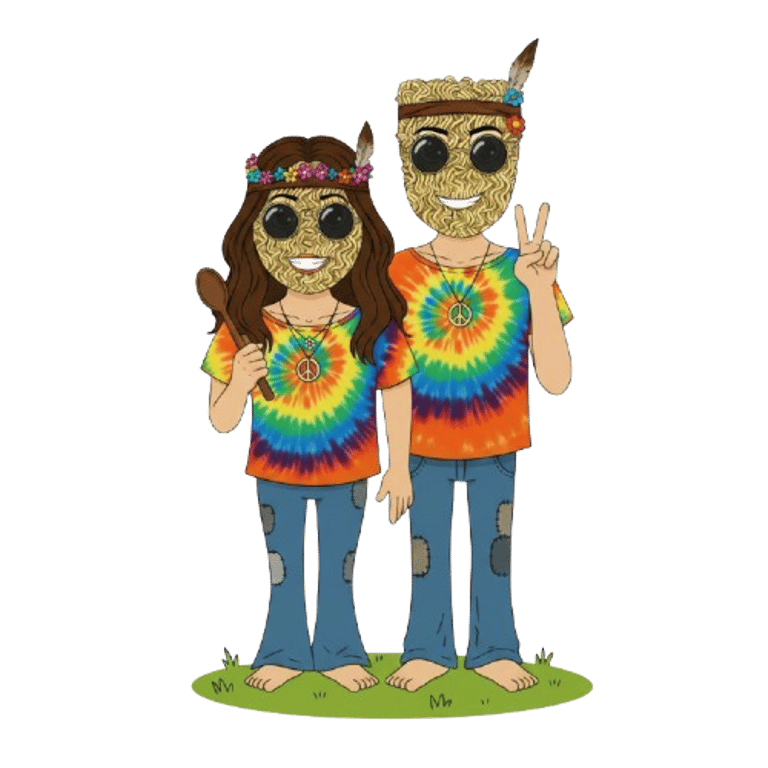Welcome to Noodles of Asia ! - A Woke Noodle Blog
From Melting Pot to Powder Keg: When America Stopped Being the Good Guys
Explore our blog post at NoodlesOfAsia.com, delving into when America lost its "good guy" status. We unpack why the LGBT community is scapegoated for social issues, how the U.S. turned from a land of opportunity to one of exclusion, and why citizens trade rights for political tribalism. Join us to stir unity over division and reclaim our shared future. #NoodlesForJustice
Woke Noodles - NoodlesofAsia.com
6/22/20255 min read


At NoodlesOfAsia.com, we often turn to the humble ramen packet—a global staple born of post-war scarcity—as a symbol of unity and resilience. Just as Koreans and Americans once shared scraps to rebuild after devastation, America's story was meant to be one of shared opportunity: a nation of immigrants, innovators, and ideals where diversity fueled progress. But in 2025, as we mark another year under divisive policies, it's hard not to ask: When did the "good guys" become the villains in their own narrative? Why are the LGBT community scapegoated for everything from school shootings to economic woes? How did the land of the free turn its back on the "huddled masses yearning to breathe free"? And perhaps most heartbreakingly, why are everyday citizens so eager to trade their rights for the illusion of team loyalty to political parties?
This isn't ancient history; it's the simmer of a stew gone sour. Drawing from recent analyses and polls, this reflection traces America's moral slide, exposing the tactics that divide us while the powerful consolidate control. Like a pot of Budae Jjigae—once a hopeful fusion of cultures—our national recipe now boils with resentment. But awareness is the first step to stirring in solidarity. Let's unpack it.
The Fall from Grace: Pinpointing America's Moral Reckoning
America's self-image as the world's moral arbiter peaked after World War II. The Marshall Plan rebuilt Europe, the GI Bill empowered a generation, and the U.S. positioned itself as democracy's defender against tyranny. We were the good guys: liberators, not occupiers; beacons, not bullies.
The cracks appeared in the 1960s with Vietnam. What started as a "police action" devolved into a quagmire of napalm and My Lai massacres, eroding trust at home and abroad. Historians often cite this as the turning point—"moral high ground" lasted from D-Day to Vietnam, after which we entered "normal grayzone empire" mode. By 1971, the Pentagon Papers revealed systemic lies, shattering the myth of transparent leadership.
The slide accelerated in the 21st century. The Iraq War's false WMD claims and Abu Ghraib tortures handed moral authority to critics worldwide. Guantanamo's indefinite detentions codified hypocrisy: We decried enemy camps while running our own. Then came the 2016 election and January 6, 2021—a mob storming the Capitol in the name of "stop the steal," watched live by a stunned planet. As one analyst noted, "America lost the moral high ground on January 6," undermining its ability to lecture on democracy.
Fast-forward to 2025: Under a second Trump term, executive orders on immigration and gender have global allies questioning U.S. leadership. Polls show international views of America at post-Vietnam lows, with allies like Europe citing hypocrisy on human rights. We've traded the "city on a hill" for a fortress mentality, where "America First" means isolation, not inspiration. This isn't decline; it's deliberate—a shift from global good neighbor to self-serving hegemon, fueled by endless wars and domestic unrest.
Scapegoating the Rainbow: Why the LGBT Community Bears the Blame
Enter the LGBT community: a convenient lightning rod for societal anxieties. In 2025, anti-trans legislation has exploded, with over 500 bills in states like Texas and Florida targeting everything from bathroom access to youth healthcare. Trump's January executive orders rolled back protections, framing transgender rights as a "threat to women and children." Over $215 million in ads scapegoated trans people during the 2024 cycle, linking them to crime and moral decay despite data showing no such correlation.
Why them? Extremism experts call it a playbook: After tragedies like school shootings, politicians pivot to "trans predators" or "groomers" to deflect from gun reform or inequality. It's classic scapegoating—blame the visible minority (LGBT folks are ~7% of adults) for complex woes like inflation or opioid crises. René Girard's theory of the scapegoat mechanism fits: Societies in crisis expel a "polluting" group to restore order, even if it's irrational.
In Trump's America, this echoes historical purges—from Lavender Scare firings in the 1950s to Reagan-era AIDS neglect. Today, diplomats even scapegoat LGBT families abroad to appease "anti-woke" bases. The result? Vulnerable youth face higher suicide rates, while politicians score points. As one Slate analysis asks, "Why are trans people such an easy target?" Because they're a small, symbolic "other"—distracting from the real culprits: corporate greed and policy failures.
Closing the Gates: From Opportunity to Exclusion
America's motto was "Give me your tired, your poor"—Emma Lazarus's words etched on the Statue of Liberty. Immigration built us: Waves of Irish, Italians, and Asians turned "No Irish Need Apply" signs into congressional majorities. Diversity wasn't a buzzword; it was our engine, with immigrants founding 55% of billion-dollar startups.
The shift began in the 1990s with California's Prop 187, demonizing Latinos as "invaders." Post-9/11, Muslims faced backlash. By 2025, support for decreased immigration has dipped to 30%—a record low—but restrictionist rhetoric persists, with Trump's travel ban 2.0 barring entries from 13 nations. The immigrant population shrank 2.6% to 51.9 million by June, the first decline since the 1960s, thanks to deportations and fear.
Why the reversal? Economic anxiety post-2008, amplified by media framing immigrants as "job stealers" despite their net positive GDP impact. White nationalist undertones, per Brookings, recast diversity as dilution: "Replacement theory" poisons discourse, turning opportunity into threat. In 2025, border flows plummeted 82%, not from policy success, but terror—families separated, asylum seekers stranded. We've forgotten: Immigrants aren't burdens; they're the ramen in our cultural stew, adding flavor and sustenance. This fortress America starves its own innovation.
Team Loyalty Over Liberty: The Perils of Political Tribalism
If division is the disease, tribalism is the vector. Americans increasingly see politics as sports—red vs. blue teams—sacrificing principles for partisan wins. A Yale study found only a fraction of voters would defend democracy over party interests. Why? Evolutionary psychology: Tribalism ensured survival, but in modern democracy, it breeds "political sectarianism," where moralized identities trump facts.
In 2025, this manifests in rights erosion. Republicans back abortion bans "for the team," overlooking personal freedoms; Democrats defend expansive surveillance if it's "for security." Game theory explains it: Loyalty signals group strength, even if it means endorsing hypocrisy—like cheering Jan. 6 if your side does it. Social media algorithms deepen the trench, rewarding outrage over nuance.
Citizens "team up" because belonging feels empowering amid uncertainty. As Amy Chua notes in Political Tribes, ignoring group loyalties backfires; but unchecked, they justify atrocities—from internment camps to modern purges. We're not just divided; we're devolved, trading civil liberties for jersey colors.
Reclaiming the Pot: A Call for Shared Broth
America didn't "stop" being good guys overnight—it eroded through wars, wedges, and willful blindness. The LGBT community scapegoated, immigrants walled out, diversity demonized, and rights bartered for tribal cheers: This is the bitter broth we're brewing.
But hope simmers still. Like ramen's global embrace, our strength lies in fusion—not fracture. At NoodlesOfAsia.com, we urge: Ditch the team jerseys. Host a "unity noodle night"—share stories across divides, sign petitions for trans rights, welcome neighbors regardless of origin. Demand policies that uplift all: Fair immigration reform, anti-scapegoating laws, democracy over dogma.
In 2025, as polls hint at immigration rethink, let's stir toward inclusion. America can be good guys again—not by erasing differences, but embracing them. Pass the ladle; the table's big enough for everyone.
